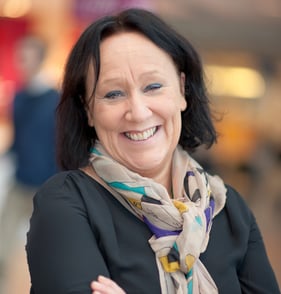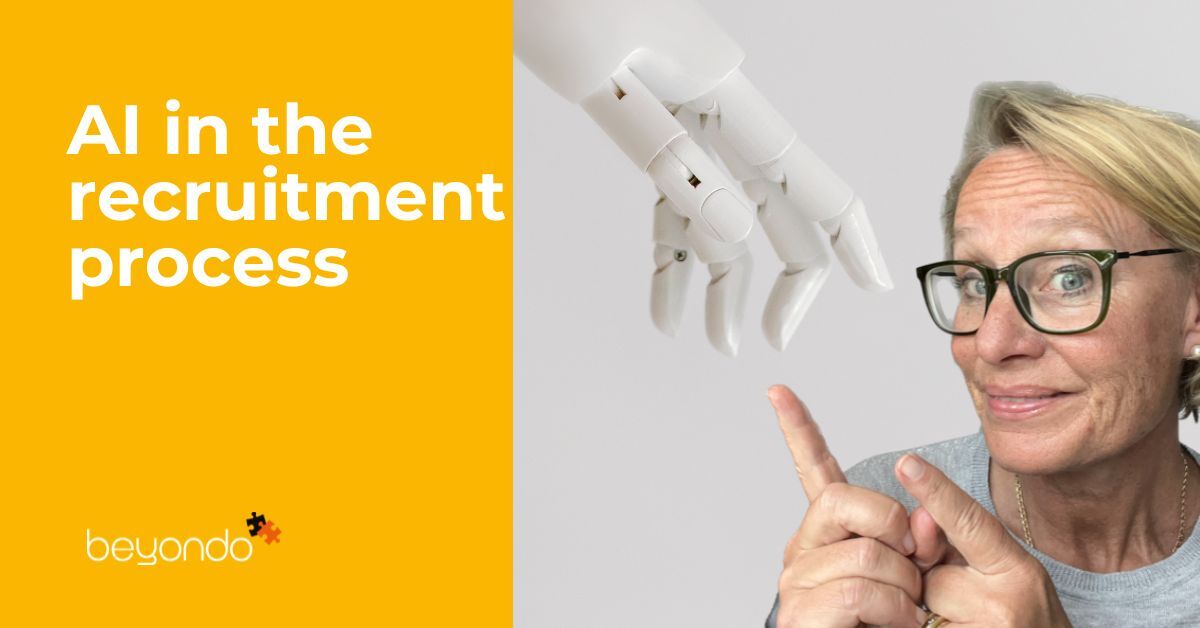It’s a stolen and tweaked quote. It was President Abraham Lincoln, himself a lawyer, who once said: “He who serves as his own counsel has a fool for a lawyer and a jackass for a client.” He meant: that if you can’t trust anyone's advice, but your own, you are not only stubborn. You are blind. Why? It doesn’t matter how clever you are. We all lose sight of our own best interests under pressure. We paint ourselves into a corner with our own choices. Imperceptibly. One choice at a time. We seek the familiar as a defence against the unknown. Not unlike founders and small to medium business CEOs who hire. Why should they feel like choosing the unknown, in a high-stakes situation? What would make them change their hiring practices? It comes down to a simple choice - take the opportunity now or wait for a crisis.
Change comes from opportunity or crisis.
Change doesn’t come out of the blue. It comes either through opportunity; Like a Swedish CEO with prospects of business in China, trundling unexpectedly down the row of cubicles to find the overqualified low-level desk clerk from Mexico, rumoured to speak business grade mandarin. Or a crisis. Like the pandemic. The last year or two has given everyone an update on what it feels like to be excluded. Just like those currently lacking representation in the workplace, are used to. You adapt.
One American dating app found they had to act when actually meeting someone was out of the question. It’s now rigged with an opportunity for female entrepreneurs to find investors and venture capital. Given that female entrepreneurs account for receiving only 1% of the world's venture capital, it’s not a bad idea. So, where do we stand on the question of representation in the workforce, right now, in Sweden? Is it about to get better? Not for employers.
It will become harder to find talent. What will you do?
Let’s look at it from a labour market perspective and ask the fundamental question. Is the workforce growing? The age group between 16 and 64, determines the supply of skills and how much employment can grow. In the last twelve years, that group has increased by 7%, but the rest of the population has increased more, by 12%. A trend that will continue throughout the decade. It means: that the amount of people serving the needs of the many, is shrinking. When looking to hire talent, you will be looking for them in a talent pool that is not keeping up with demand. And if the profile you are looking to hire is exactly like yourself - they will be increasingly harder to find. In fact, the tables are about to turn. The onus will be on the employers to prove that they welcome a broader talent base.
Start changing now, to be ready for what is coming.
Companies are in a fight for talent, and better start now to prove that everyone is welcome. In the future. To choose the backseat and not be in front, deciding the direction you want to go, will probably backfire. An attractive employer is not created overnight and companies with narrow corridors of thoughts and representation will be excluded. Both because “old fashioned, male predominance” and homogeneous groups are dissuasive of, perhaps above all, young skills.
A diversified chorus of votes makes better decisions.
If you were buying a house. Wouldn’t you prefer a second opinion? Or a third. And wouldn’t that opinion be of a higher quality if it had additional knowledge and experience to your own? Otherwise, you could just do it yourself. Why stop there? How about multiple perspectives on this big investment to make this final decision rock solid? Including people different from yourself, makes decisions more informed, and offers different perspectives and a flow of ideas you would otherwise not have access to. The same is true of companies, the best decisions are made after a diversified chorus of votes.
Don’t use tests just to exclude.
There may be a few tests that are ok, but in my experience, they are being used as a comfort blanket for the recruiter. In other words, testing individuals has become another way of not dealing with the individual. When testing a large volume of candidates, you cull the list. The goal is to narrow it down to a manageable volume of people who possess none of the traits you don’t want, and most of the traits you desire. It seems rational. But equally rational is the tactic to counter it. In my neighbourhood, a couple of years ago, a young professional applied for his very first job, but in doing so, was so nervous about not landing the position, that the whole family contributed with their answers and input for the test. A few years later, the young professional has been promoted twice, and is well-liked and appreciated. To this day, no one at the company knows that the test was not done by the candidate himself.
Are personality tests effective against prejudice?
We need to think about this! Are tests the right tool for seeing beyond prejudice? Are tests really taking into account the benefit of diverse answers? I live with a person who is a Scandinavian (not of Swedish origin). A few years ago he was doing a personality test. He read the questions out loud, thought a bit and read the optional answers. When listening, I began noticing how he selected and resonated through the answers. It became clear to me that even the small cultural differences that of another Scandinavian origin represents were great! Our interpretations of the topic - questions and answers were completely different. I started to question the notion of a single right answer. Tests may be relevant, but not always as a tool for the positions they are used to fill, and not when they are a tool merely for exclusion.
There is a missing piece in the puzzle of recruitment diversified chorus of votes makes better decisions.
We often read about companies that recruit skills-based and based on company values. Why then are so many still left out of the labour market? Our education system does not exclude people who make the mark. Not in the same way. Why should the workplace? There is a missing piece in the puzzle. We should leave behind a world where you can’t devote yourself to only recruiting your “spitting image” because of an inability to look beyond how we all “happen to be packaged”. It must be the recruitment of the right skill set and the willingness of candidates to contribute to what the company stands for. That is what counts!
About Tove
With more than 20 years of experience within the Diversity & Inclusion area, Tove has successfully been responsible for driving this forward within several companies.
During that time, she has increased knowledge and driven issues that have paved the way to create opportunities for the welcoming company. It is both a matter of knowledge and attitudes as well as purposeful work. Tove's efforts have attracted attention and for her meant more than ten nominations and awards, the most recent by the Financial Times Diversity Leaders 2021. On June 1, Tove and her partner Mia Woll Hedin launched Accessible Society . They will both lecture and offer consulting efforts so that companies can start their work.

Curious to know more about The Accessible Society and their work? Follow them on LinkedIn. You are also welcome to follow Beyondo LinkedIn.


